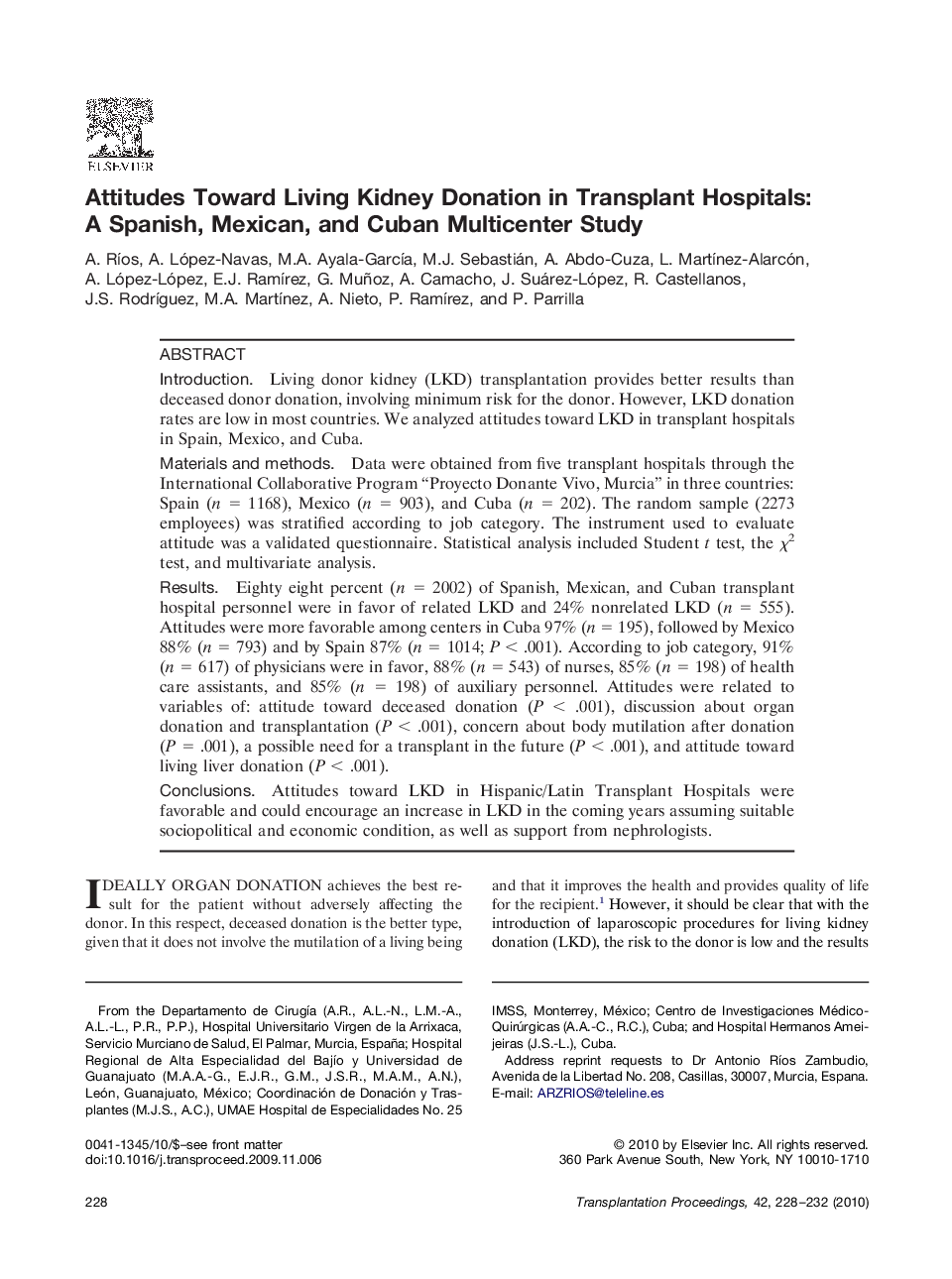| Article ID | Journal | Published Year | Pages | File Type |
|---|---|---|---|---|
| 4260856 | Transplantation Proceedings | 2010 | 5 Pages |
IntroductionLiving donor kidney (LKD) transplantation provides better results than deceased donor donation, involving minimum risk for the donor. However, LKD donation rates are low in most countries. We analyzed attitudes toward LKD in transplant hospitals in Spain, Mexico, and Cuba.Materials and methodsData were obtained from five transplant hospitals through the International Collaborative Program “Proyecto Donante Vivo, Murcia” in three countries: Spain (n = 1168), Mexico (n = 903), and Cuba (n = 202). The random sample (2273 employees) was stratified according to job category. The instrument used to evaluate attitude was a validated questionnaire. Statistical analysis included Student t test, the χ2 test, and multivariate analysis.ResultsEighty eight percent (n = 2002) of Spanish, Mexican, and Cuban transplant hospital personnel were in favor of related LKD and 24% nonrelated LKD (n = 555). Attitudes were more favorable among centers in Cuba 97% (n = 195), followed by Mexico 88% (n = 793) and by Spain 87% (n = 1014; P < .001). According to job category, 91% (n = 617) of physicians were in favor, 88% (n = 543) of nurses, 85% (n = 198) of health care assistants, and 85% (n = 198) of auxiliary personnel. Attitudes were related to variables of: attitude toward deceased donation (P < .001), discussion about organ donation and transplantation (P < .001), concern about body mutilation after donation (P = .001), a possible need for a transplant in the future (P < .001), and attitude toward living liver donation (P < .001).ConclusionsAttitudes toward LKD in Hispanic/Latin Transplant Hospitals were favorable and could encourage an increase in LKD in the coming years assuming suitable sociopolitical and economic condition, as well as support from nephrologists.
